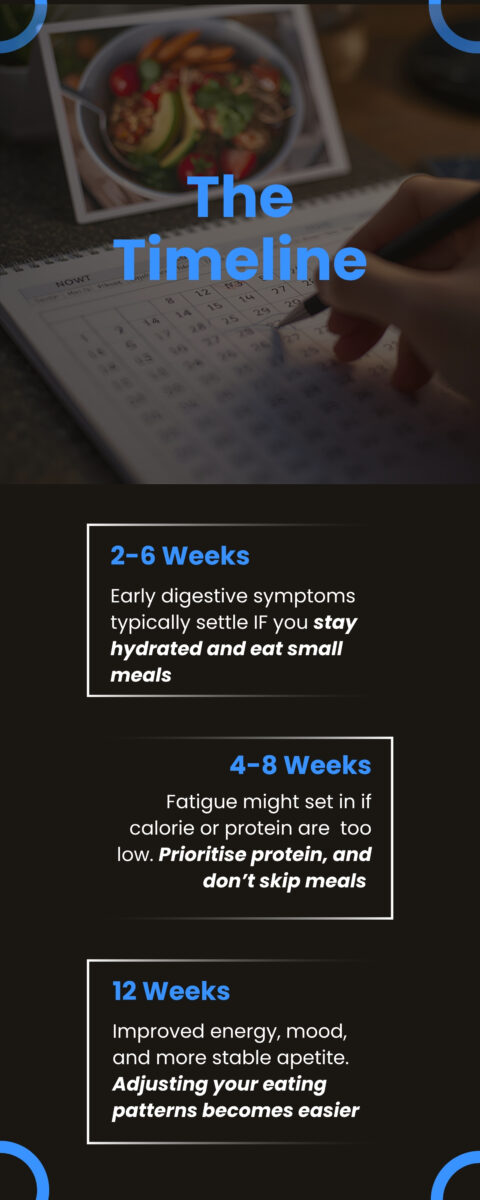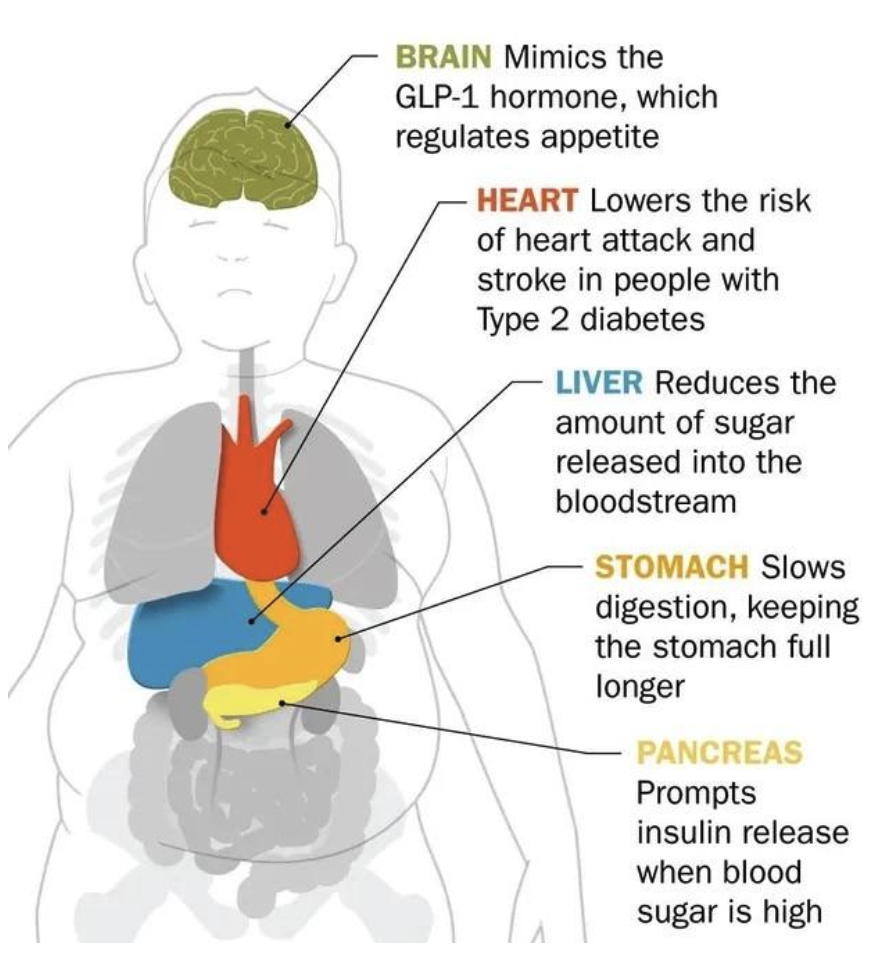You start your first injection, and within days, food could taste different. Meals feel heavier, your appetite fades, and suddenly your body isn’t playing by its old rules. What’s happening inside?
Ozempic, Wegovy, and Mounjaro are like three siblings with the same last name but very different personalities. They all belong to a family of medicines that help your body use insulin more effectively and calm your appetite, but each one has its own focus.
- Ozempic® (semaglutide): Indicated in Australia for type 2 diabetes. Some people lose weight, but that’s a secondary effect.
- Wegovy® (semaglutide 2.4 mg): Approved for chronic weight management in adults (and with an additional indication to reduce cardiovascular risk in certain patients).
- Mounjaro® (tirzepatide): Originally for type 2 diabetes; the TGA has since expanded Mounjaro’s use to include weight management.
These medications share many benefits and common side effects. Understanding what is normal and what is not is essential, because losing weight should never mean losing your strength, comfort or peace of mind.
The Science in Simple Terms
The result? Often powerful weight loss – but also a big shift in how your body feels, and functions from day to day.
What you might notice
As your stomach empties more slowly and hunger changes, foods you once loved may feel too ‘heavy’. Skipping meals might lead to low energy due to a lack of basic nutrients.
Nausea, reflux, or constipation are common early on – and usually settle.
The Good Changes to Expect
- More stable energy (fewer crashes)
- Smaller portions feel satisfying
- Better blood glucose and HbA1c
- Reduced inflammation and fatty liver risk
- Visceral fat loss (the kind that surrounds organs)
- Ongoing metabolic improvements, even if weight loss slows
These changes are real – and powerful – but only when paired with enough food, fluids, and attention to symptoms.
You may think it’s healthy because you’re losing weight.
Remember, though, you still need a regular intake of basic nutrients. Otherwise, your health will suffer!
How Long Does It Take to Adjust?

When to See Your GP
🚨 Call your GP urgently if:
- You can’t keep fluids down or are barely peeing
- You have severe tummy pain (especially under ribs)
- You faint or feel dizzy when standing
- Your vision changes (especially if diabetic)
- Constipation lasts 4–5+ days with bloating or pain
- You’re losing weight too fast and feel exhausted or unwell
📅 Book a routine GP check-up if:
- You’re losing weight but feel flat, foggy, or depleted
- You’re unsure when to increase your dose
- Nausea or reflux makes meals difficult
- You’re on other medications and feel “off”
- You’re planning pregnancy or have new health goals
- Your food variety has become limited
When to See a Dietitian
Not all side effects are medical – some are nutritional.
A Dietitian can help you adjust your eating plan so you stay nourished, even when your appetite or digestion feel off. If your eating feels confusing, forced, or exhausting, it’s time to reach out.
👩🏽⚕️ Book a session with a Dietitian if:
- You’re skipping meals or relying on very few foods
- You feel full too fast and struggle to finish small portions
- You’re losing weight unintentionally or too quickly
- Your energy levels, mood, or focus are suffering
- You’re unsure how to meet protein, fibre, or vitamin needs
- You want to build a sustainable long-term food routine
Working with a dietitian like Veronika can help you feel healthy, energetic, nourished, and confident – even when your hunger signals aren’t doing their job.
🧠 Feeling unsure about food, appetite, or nutrition?
A dietitian can help you rebuild a food plan that supports your energy, digestion, and goals – even on those tough days when you have a low appetite and feel sluggish.
👉 Book a session with Veronika for personalised support.
📄 To see her full range of services, visit our Dietetics Clinic in Miranda & the Sutherland Shire services page.

Veronika Pudikova is a Dietitian at PhysioCentral. Miranda. Sutherland Shire
